How does waste avoidance actually work at school? If you're looking for a clear answer to this question and zero waste tips for everyday school life, you've come to the right place! Whether it's food packaging, plastic bags, pens or discarded notes: a lot of garbage accumulates in the classroom or playground every day, which pollutes the environment and isn't nice to look at either.
Fortunately, waste in the sense of the Zero Waste Lifestyle with really simple means - by students, parents and those responsible in the school building.
In this article, I would therefore like to give you the best tips for avoiding waste at school. Use them to make a real difference. Let's go!
Reasons: Why is it important to consciously avoid waste at school?
Before we move straight on to the specific tips, I would like to give you a brief the most important and motivating advantages to consciously avoid waste at school:
- Protect the environment: The waste in the environment, the consumption of planetary raw materials for the production of the material (e.g. crude oil), as well as the associated CO2 emissions, burden nature in three ways. Ecosystems - especially the animals that live in them - suffer from our Throwaway Society. It is more environmentally and climate-friendly if the waste is not produced in the first place.
- Save costs for the school: As the zero waste concept is based on reusability, many items only need to be purchased once. Disposal costs also reduce the financial burden. The more efficient use of resources therefore frees up money that can then be invested more wisely within the educational institution.
- Promoting sustainable and responsible action: Schools that place value on waste avoidance promote the Environmental Awareness and the responsible, sustainable actions of their students. In doing so, they act as role models - not only for students, but also for our society as a whole. They set an example that responsible action is something worth striving for and can have a positive impact.
14 tips: How can zero waste work at school?
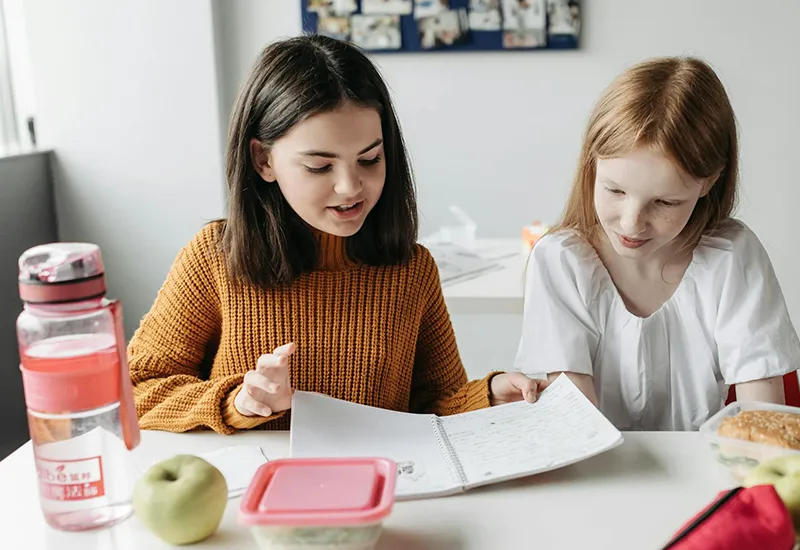
Now we come to the specific tips. Whether you are a student, teacher or school principal: Let it inspire you to actively avoid waste at school and make a positive change in your school.
1. use a lunch box instead of a paper bag
Through Aluminum foil, paper bags or plastic bags for snacks experience shows that new waste is produced every day. The first step towards avoiding waste at school is therefore to use a reusable lunch box.
And if you already have a plastic container, you should of course use it for as long as possible. But basically I think a Stainless steel lunch box for the best alternative, as they is washable, plastic-free and lasts for an eternity. And if it has several compartments, you can even easily divide bread, fruit and other snacks into them.
My recommendation: This stainless steel lunch box set* (with divider and name) is the ideal companion for a waste-free school time.
2. use a reusable drinking bottle
To School waste from plastic bottles or juice packs to avoid this, you should get a reusable water bottle which you can then fill up at home (and also at school with tap water).
Here, too, a Stainless steel bottle particularly well, as it is very robust and not made of plastic. It also keeps the drink cool in summer and warm in winter. Alternatively, you can also use a Glass bottle use. However, bear in mind that it can break more quickly if you put your backpack down or drop it.
My recommendations: This stainless steel drinking bottle* and these Glass drinking bottle* (with swing-top lid and custom motifs) are the best in my opinion.
3. oilcloths instead of cling film for the lunch break
Oilcloths are a great and particularly useful tool at school. Waste-saving alternative to conventional cling film. While the latter ends up in plastic waste after a short period of use, wax cloths are made from natural raw materials, are flexible and washable and have a very long service life.
They also don't stick, so you can easily store and transport your lunch in your satchel or rucksack. Beeswax cloths are of course a very good substitute in this respect. However, I recommend more animal-friendly ones Wipes made from vegetable wax instead of beeswax.
My recommendation: With these oilcloths* you are on the safe side!
4. use recycled exercise books and paper
The use of exercise books also generates a lot of waste every year. a lot of paper and plastic waste. So it's worth looking out for recycled exercise books in the stationery store to conserve the planet's natural resources. This also applies to the purchase of college pads.
Recommended are Notebooks and pads with slightly grayish leavesas they are unbleached and therefore particularly environmentally friendly.
Recommendation: Such exercise books* are a suitable and environmentally friendly alternative.
5. get a cardboard loose-leaf binder
Binders are also very useful and important for keeping track of learning materials. Unfortunately, they are mostly made of plastic. However, there is also a practical alternative made from recycled paper.
Recommendation: These cardboard loose-leaf binders* for example, are just as sturdy as conventional loose-leaf binders, but are much more environmentally friendly.
6. collect and share pens and objects
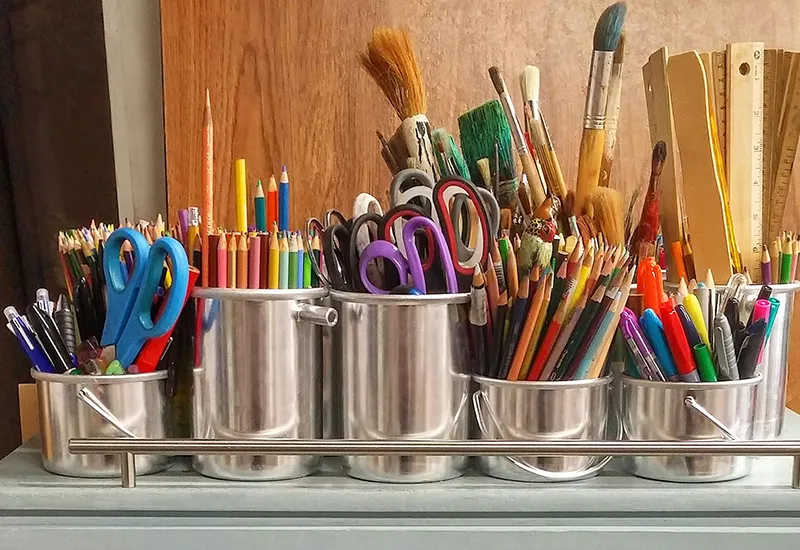
A lot of waste is also produced during school time because all parents or students bring their own pencils, scissors, rulers, triangles and other school utensils have to buy.
Of course, it would be much more resource-efficient to share as many of these items as possible. Instead of all your classmates having to buy new pens and school materials every year, you could, for example Collect and share objects in the classroom. This is not only environmentally friendly, but also promotes a sense of community.
7. use up your old stock
Before you go to the nearest stationery store and buy new, environmentally friendly alternatives, you should, for example, use the pens and writing pads you already own, Use until they are used up. Otherwise you will produce unnecessary waste.
8. swap books that are no longer needed with other students
Waste avoidance at school is supported, for example, by a Exchange corner even easier in the school building. There, students from different levels can swap books or items they no longer need with other students.
In the end, everyone gets the necessary materialswithout creating new waste - and without using up any more resources. But there always have to be people who stand up for such cool ideas 🙂
9. use both sides of the paper from the pad
You can do a lot Save paper wasteby simply using the Back of your sheets from the writing pad use. This is especially useful if you are using a classic college notepad. You can also keep old sheets of paper and use them later as notepads.
Tip: Are you often allowed or required to give a presentation or lead a discussion at school? 🙂 Then you should definitely take a look at this list of sustainable topics to. Use them, for example, to raise your classmates' awareness of the ecological and social challenges of our time in your own presentations and debates.
10. buy used books instead of new ones
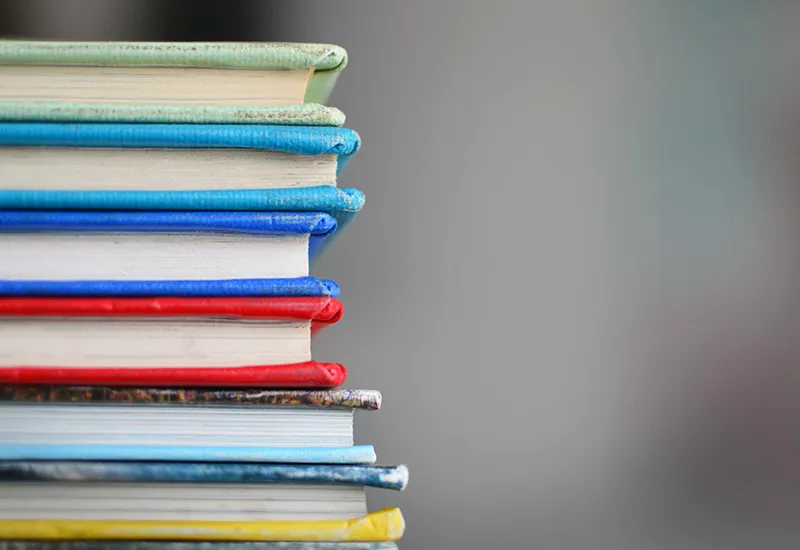
Some textbooks are provided by the school, others you have to buy yourself. Instead of constantly buying brand new books, you can also buy their old copy from other students.
This not only avoids a lot of waste, but is also considerably cheaperso that you can also Save money sustainably can. If you can't find anything in your area, take a look at rebuy or medimops after!
Tip: Buying or getting things second-hand doesn't just apply to books, of course. If you have older siblings, you can also get compasses or a set square from them, for example. This also saves natural resources.
11th Zero Waste school parties with reusable alternatives
I'm sure there are regular celebrations at your school, right? Especially through Disposable plastic, such as drinking cups, cutlery or plates experience shows that this generates mountains of waste.
But a school party can also be organized in a waste-avoiding way - for example with Reusable tableware, stainless steel cutlery and reusable deposit cups.
Tip: More inspiration for plastic free parties can be found in the linked blog article.
12. avoid quick snacks from the vending machine
In the cafeterias and break rooms of many schools, there are snack and drink vending machines where pupils can simply help themselves to something in between. The However, snacks are always wrapped in plastic - and also the Drinks are usually only available in plastic bottles.
This creates waste that is relatively easy to avoid. Simply take in the morning a little more food in your lunch box and remember to refill your water bottle at home. You might even be able to convince your school to switch from plastic bottles to returnable glass bottles.
13. express improvement requests for the break sale
Do you have a school kiosk? But unfortunately it is not zero waste at all? Then why not talk to the sales clerk about possible, more environmentally friendly alternatives for break-time sales. Many people are open to sustainable change - especially if you can avoid unnecessary waste.
14. collect garbage together in and around the school
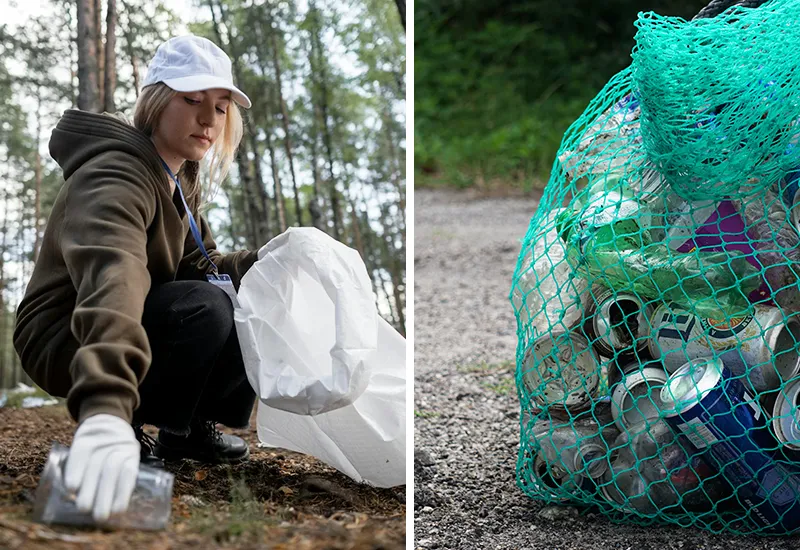
The Avoiding waste at school is an important step - But it is rare for the playground or school environment to be completely clean. This is also because many children are often not yet aware of the impact of waste on our planet.
Schools therefore carry out important educational work by Regular clean-up campaigns and waste collection days or through projects on the subject of Plastics recycling and Plastic waste in the environment. This ultimately increases the sense of responsibility of the whole school class - and together you set a strong example for environmental protection.
Tip: You are also welcome to visit our worldwide CleanUp Community on Facebookwhere people from all over the world are campaigning for a clean environment. You can find even more tips in the detailed article about the Raising children's awareness of environmental protection.
Waste avoidance at school, made easy!
Try to keep the many different tips simple to be implemented gradually. This is how you lay the foundation for a lasting, successful, waste-avoiding change in your life - and perhaps also in your school.
As you can see, it really isn't difficult to reduce waste in the classroom or schoolyard. But it always needs people like you to lead the way and are actively committed to improving the school day.
"What we do today will determine what the world looks like tomorrow."
Marie von Ebner-Eschenbach (more at Sustainability Quotes)
I hope that these tips and ideas will help you. Do you have any questions or suggestions - or even more tips on avoiding waste at school? Then I look forward to your comments under this post.
Stay clean and never stop learning,

PS: Despite Climate Changerainforest deforestation and plastic waste in the world's oceans, environmental protection is still not a school subject. In the article Environmental protection in school I will explain the reasons why this should change as quickly as possible.

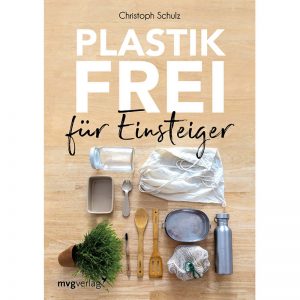
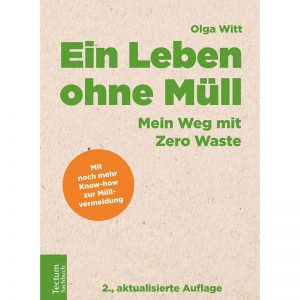
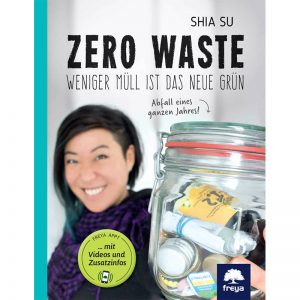
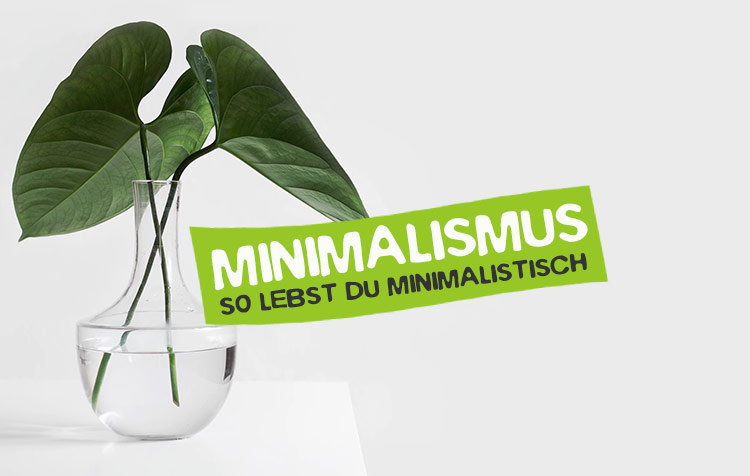

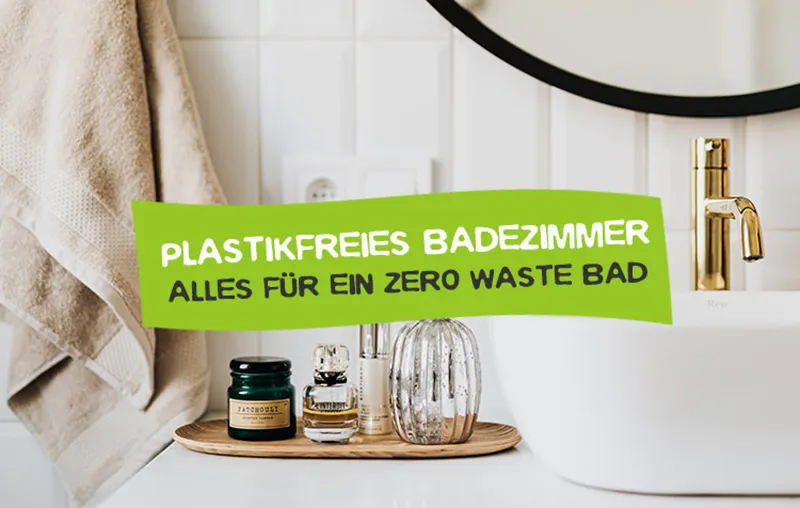
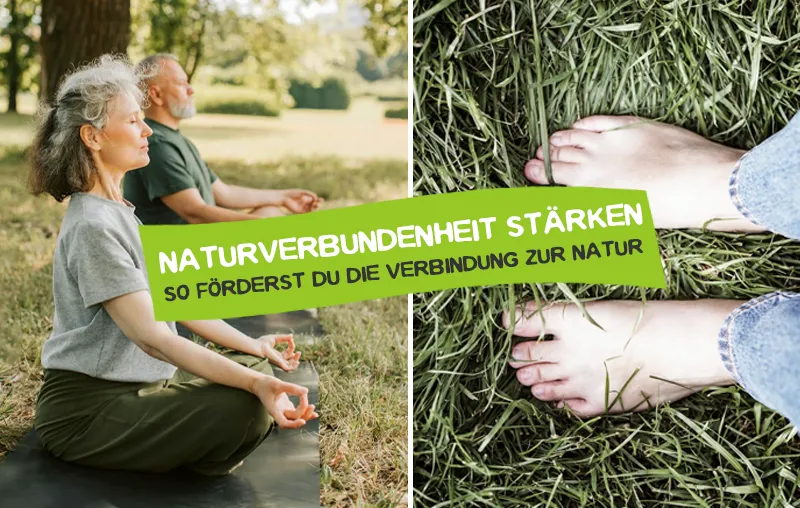
Really some great tips there. Thank you very much.
we are doing a project in school and have chosen the topic of plastic in school and this site is also very helpful because you have everything on the site
Hey Schaymaa! That makes me very happy, thank you for your feedback! Good luck with all your projects on this topic - and by the way: it's great that you're dealing with waste prevention in school.
Best regards
Christoph
Pingback: Plant trees easily from plantable pencils | CareElite®